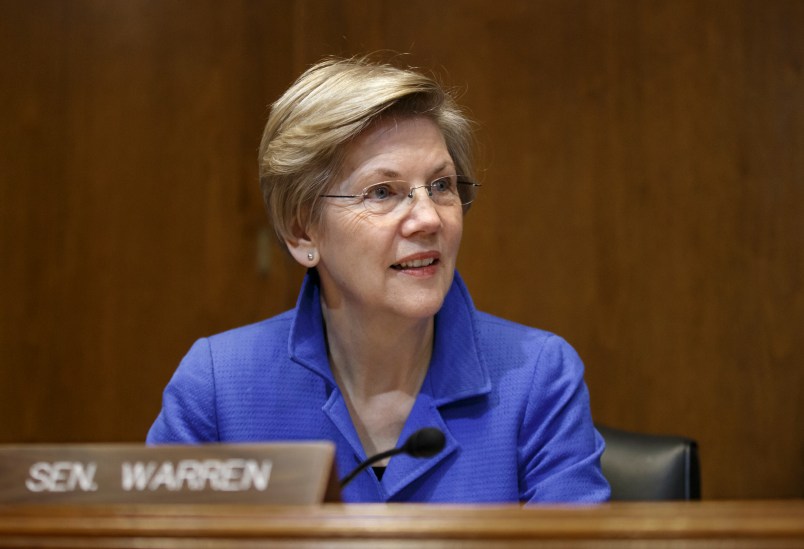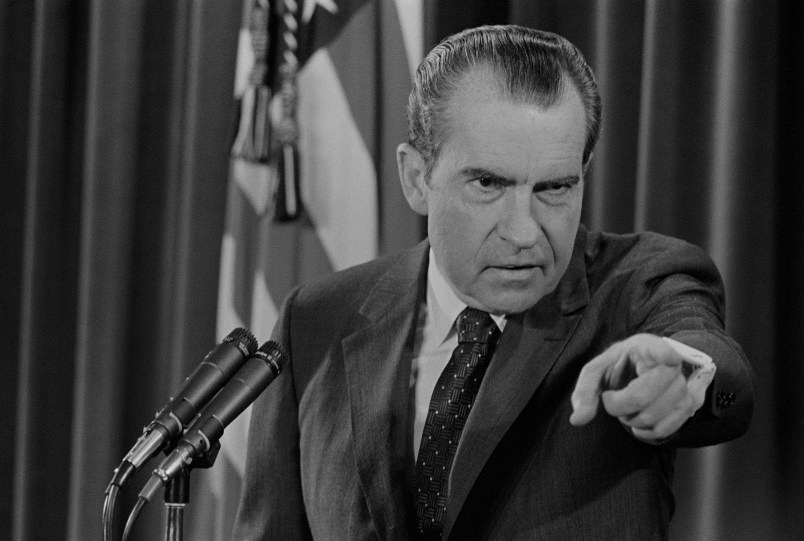The last two years of Obama’s presidency will largely be defined by his defense of key legislation: the Affordable Care Act, caps on carbon emissions and Dodd-Frank. While the broad shape of the first two battles is already known, the war on financial regulation, because of its abstract nature, will often be waged outside of the public eye. In his State of the Union Address last week, Obama said he plans to veto future provisions that would unravel his regulations of Wall Street. These words are welcome, though not as strong as Elizabeth Warren’s call to go on the offensive against the bank lobby. If Obama sticks to his promise, he’ll have a lot of fighting to do, because Republicans are itching to repeal his most important financial reform legislation.
During the haze of holiday parties and shopping anxiety, a repeal of a Dodd-Frank Financial Reform provision, handwritten by and for the financial lobby, was stuck into a critical spending bill, known as the CRominbus. After the holidays came the Terrorism Insurance Act which included sections that exempt companies using derivatives from the possibility of being subjected to rules that would make the derivatives safer. A standalone bill that repealed a menu of derivatives reform provisions and generally reversed securities disclosure regulations failed by to get expedited treatment in the House, but eventually passed the House, even though the President said he would veto it. The bill includes a delay of implementation of the all-important Volcker Rule, which prevents the big banks from risky trading activities, until 2019. By then, they hope, actual repeal of Volcker Rule may be feasible and the banks will once again be allowed to risk the public’s money in the markets.
Rolling back reform of the financial system is at the top of the agenda for the new Congress. The strategy of the opponents of a safe and honest financial system is obvious. They believe that memories of the abject horror of the 2007-08 financial crisis, which cost our economy between $6 and 14 trillion in economic output, have faded sufficiently to deal the financial sector regulation a death of a thousand cuts. After a couple of years of section-by-section repeal, financial regulation will be gutted and the good old days of financial markets functioning as casinos rigged for the big banks will return.
Conservatives argue that one little change won’t hurt, especially if it is given up as ransom for some important policy that has been taken hostage. Conservatives are forwarding flimsy justifications for their crusade. For example, Kansas Rep. Kevin Yoder claims, “This fix actually makes banking safer — specifically, the commodities markets for agriculture and energy producers — while not exposing the American taxpayer to further liability.”
This is a classic example of double-speak. Yoder says that making the commodities markets safer for producers by eliminating regulations designed to make the producers safer makes banks safer. The provision he pushed to repeal (known as the “swaps push out”) did not prohibit any derivatives trading at all. It required that commodities derivatives (based on the prices of agricultural and energy commodities) be transacted by banks in a separate subsidiary corporation that might be jettisoned if the worst happened, avoiding threat of a total bank shutdown. The provision protects taxpayers from having to pay for the expensive mistakes of Wall Street.
Time and again we will hear these talking points, but they will be just as nonsensical as the justifications for CRomnibus. The real outcome will depend on the White House. If it is willing to defend financial reform as one of its signature accomplishments, as it has done with the Affordable Care Act, financial regulation will survive. So far, the White House’s words and actions do not jibe. For instance, the White House capitulated and signed the Terrorism Insurance Act, even though it contained deregulatory measures.
The banking lobby is a potent force, even in this administration. The future doesn’t look much brighter: Hillary Clinton is not exactly known as a warrior against Wall Street. When people like Elizabeth Warren argue that the best defense of financial reform is to go on offense and push for stronger rules, the audience is not just Congress and the general public. The targets are also the folks located at the other end of Pennsylvania Avenue and those who would like to move into that address.
Wallace Turbeville is a Senior Fellow at Demos.










Actually, this is one of your big issues for 2016, especially after the Banking Crisis when Obama took over and NOBODY went to jail. Since these sharks are going to be pouring money into the 2015 race ANYWAY, the Democrats should be taking loudly about putting some of them in prison.
I would like to see a Warren/Sanders ticket. Clinton is too cozy with Wall Street. I am a democrat who will NOT vote for Hillary.